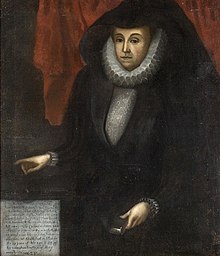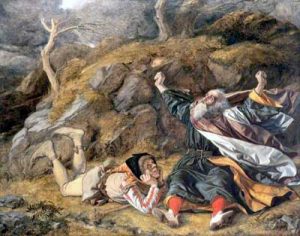For this blog, I am focusing on Edmund in Act 5 of King Lear as well as sexuality and nature.
In the beginning of the act, Edmund is doing very well. He is inheriting his father’s land, money, and titles and has both Goneril and Regan wrapped around his fingers. He is also extremely ruthless and evil in the beginning of the act. When Cordelia and Lear have been defeated in battle, Edmund hands the captain a note to kill Lear. His only values seems to be this situation of ethics where you have to act the way you’re supposed to act at any given time (5.3 lines 31-32). He gives the example that a swordsman cannot be tender hearted because he is in the situation to kill; therefore he must kill and cannot be kind. As the play goes on, “the wheel is come full circle” (5.3 line 174). Edmund has now lost the duel against his brother and has been injured. He recognizes that he had been making his way up but has now hit the bottom. He is again just a lowly bastard. In the end, Edgar spurs on a change of heart for Edmund. Edmund says despite his own nature he wants to do good and try to save Lear and Cordelia from the captain he ordered to kill them.
Earlier in the play, Edmund gives this soliloquy about how being a bastard is the most natural thing in the world. Yet, in other parts of the play other characters seem to blame the whole situation of Gloucester’s infidelity. In some ways, this is true. If Gloucester had not had the affair, Edmund would not have been born and some (of the misfortunate) parts of the play would not have happened. Shakespeare also seems to place a dark emphasis on sexuality in Lear. Being “sexuality immoral” has bad consequences. Gloucester’s affair leaves him with a traitorous son and eventually sightless and dead. Goneril and Regan become more vicious in their competition to end up with Edmund, and both end up dead.
In the end, Edmund goes against his evil nature to try to do some good by trying to save Cordelia and Lear. This perhaps suggests that in the face of grace (when Edgar forgives him) that even the worst is capable of change despite their nature to be evil. However, even fighting his evil nature, Edmund is really unable to save anyone. Trying to fight his nature did not work. Cordelia and Lear still end up dying, both indirectly by Edmund’s hands. Since he actually is unable to do no good, does this mean that the play suggests that one’s nature cannot be changed?



